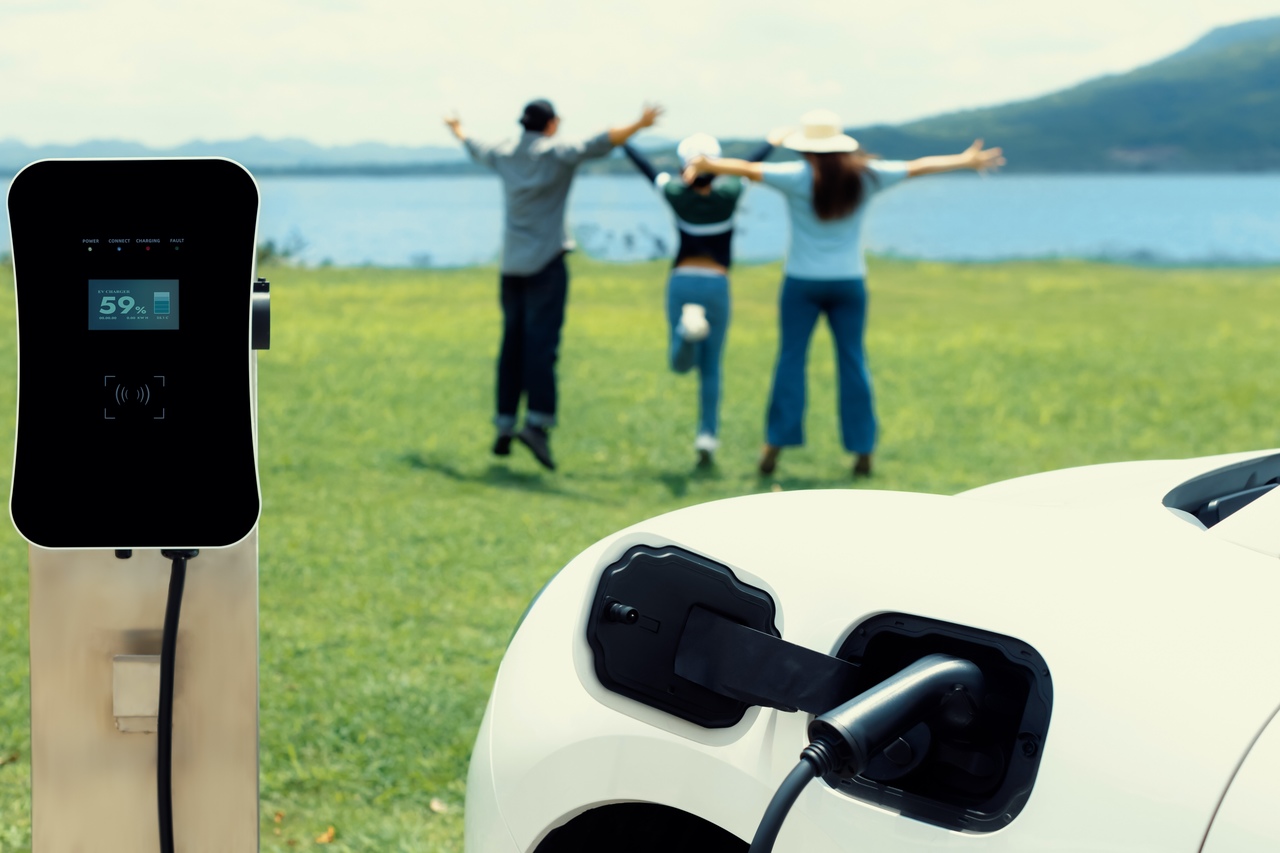
The electric cars that will win over families
Whether seeking economy, sustainability, technology, or all of the above combined, the demand for electric cars is steadily increasing
By Diego Paiva
Increasingly common on Brazilian roads, electric cars are here to stay. Registration data from across Brazil shows a 41% growth compared to 2021 figures, closing 2022 with a fleet of nearly 130,000 electrified cars (including fully electric, hybrid, and plug-in hybrid models) circulating throughout the country.
Whether driven by the pursuit of economy, sustainability, technology, or a combination of these factors, the demand for electric cars is steadily rising, prompting manufacturers to strive to bring more models to Brazil. Renault, Peugeot, Nissan, Volvo, Audi, Porsche, BMW, among others, offer around 120 models for sale in the country, some even available through subscription services.
Once seen solely as urban-use options due to limited range and a lack of charging stations outside major cities, there are now electric car options with ranges exceeding 600 km on a single charge. Initiatives like the “Rota Sul,” a partnership between Movida, Nissan, the SIM gas station network, and Zletric, are connecting the entire Southern region of Brazil with a route that links São Paulo to Uruguay, featuring fast-charging stations every 200 km. These stations can charge a car’s battery from 20% to 80% in less than 30 minutes, depending on the model.

Something unique about electric cars that particularly appeals to technology enthusiasts is that most models operate like a large gadget. Similar to smartphones, tablets, and computers, periodic updates are performed where the car can receive improvements in battery autonomy or a performance upgrade, with the same motor suddenly providing more horsepower immediately after the update, for example, among other enhancements.
Get to know some 100% electric models that are already available for purchase in Brazil. We’ll present everything from smaller urban models to options for the highway and for those who enjoy speed.
Renault Kwid E-Tech
The Kwid is currently the cheapest 100% electric car in Brazil. It shares the same body as the combustion model, but with some details in the paint and some exclusive accessories for the electric model. It was voted the best buy by Quatro Rodas magazine in 2022 among electric cars up to R$300,000. Range: 298km Charging time: 40 minutes on an ultra-fast charger from 15% to 80% battery capacity, 2h54 on a 7kW wallbox, or 8h57 on a 220v household socket.
Price: starting from R$149,990
Mini Cooper S E
With a well-known and established design, the Mini Cooper S E brings all the tradition of the British manufacturer with various technological features, maintaining the design of the iconic 3-door hatchback. Very urban, ideal for small families. Range: 234km Charging time: 29 min on a 50kW ultra-fast charger, 2h10 on an 11kW wallbox, and 14h on a standard Brazilian socket of 1.8kW. All data consider charging up to 80% according to the manufacturer.
Price: starting from R$257,990
Volvo XC40 Recharge
A creation of the Swedish manufacturer that is synonymous with safety worldwide, the mini SUV is the entry-level model for the manufacturer in Brazil. The contemporary design and sustainable materials used in construction characterize every detail of the XC40 Recharge. Range: 305km Charging time: 28 min on a 50kW ultra-fast charger (from 10% to 80%) and 7h from 0 to 100% at home using an 11kW wallbox according to the manufacturer.
Price: starting from R$329,950.
Audi e-tron
The e-tron was Audi’s first 100% electric model and became a worldwide success. The team brought all the essence of the German brand to the era of electricity, with elegance and sportiness (even in a large SUV), ensuring comfort and good autonomy for the model. Range: 436km Charging time: on a 7.2kW socket, a full charge takes 13h, while at ultra-fast stations, it takes approximately 30 minutes to go from 0-80% battery according to Audi.
Price: starting from R$598,990
BMW iX xDrive50 Sport
With the slogan “a car without limits,” this BMW SUV has a futuristic look and a concept car structure straight out of an auto show. It has 523hp, accelerating from 0-100km/h in 4.6s and an incredible range of 630km on a single charge. It has remote software updates, adding, extending, or enhancing functions while recharging in the garage with its own factory internet connection. Range: 630km Charging: from 0-100% with an 11kW wallbox in 10h45 and from 10-80% in 35 min using an ultra-fast charging station.
Price: starting from R$860,950
Porsche Taycan4 Cross Turismo
Moving away from SUVs and thinking of mothers and fathers who are passionate about the brand and seek a sustainable option, the Porsche Taycan is undoubtedly the perfect choice. With up to 761hp in the Turbo S version, it takes the sedan from 0-100km/h in unbelievable 2.8 seconds, reaching up to 260 km/h. Whether taking the kids to school or hitting the road in style. Do you miss hearing the roar of the combustion engine, a characteristic of the brand’s supercars? The manufacturer solved this with the “Porsche Electric Sport Sound,” emulating the engine roar both inside and outside the car, compensating for the lack or low acoustic interaction that electric cars generally have. Software updates are also available, but only at dealerships for now. Range: up to 512 km. Charging: from 5-80% on ultra-fast chargers in 22.5 minutes, while it takes 9h for a full recharge on an 11kW wallbox.
Price: between R$629,000 and R$1,099,000
All technical data on performance, range, charging time, and prices were provided by each manufacturer. We did not conduct test drives on any of the cars mentioned in the article.
Services
Things the Way Family love to pack in their suitcase:
Gate
Eletronics for the travel: smartphone, drone, câmera, charger,…
Destiny
UV clothes, bikinis, caps, diving goggles, snorkel mask and other accessories…

















